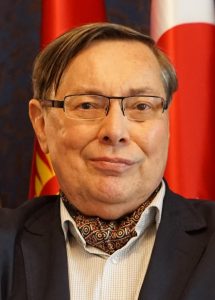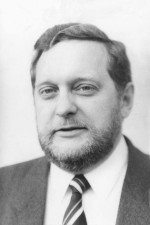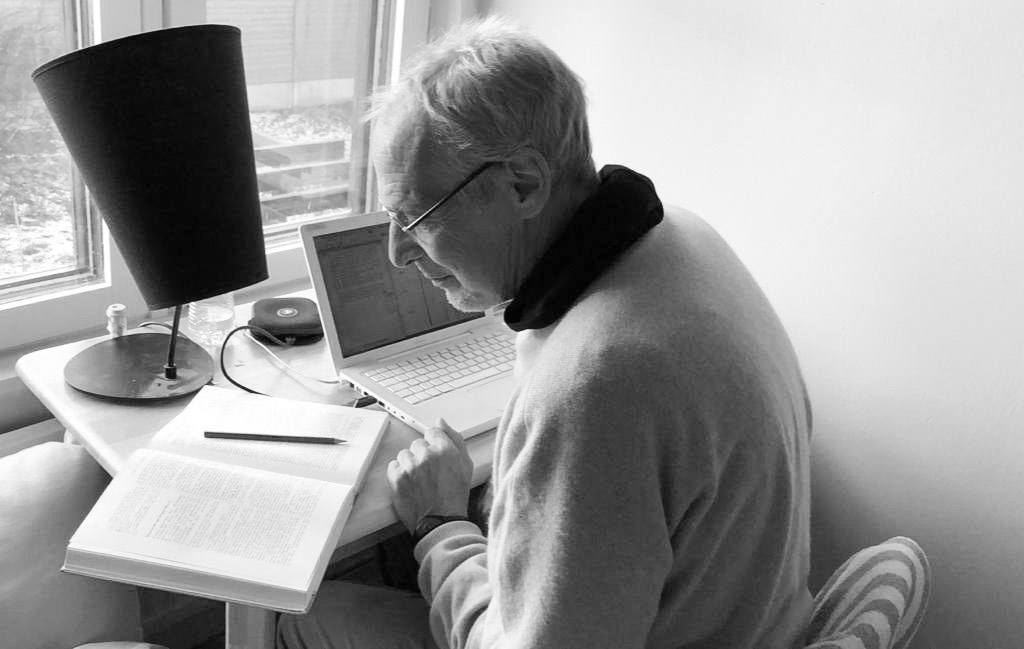Гирфанова, Альбина Хакимовна, Albina Hakimovna Girfanova (born in Weimar, GDR, on February 1st, 1957, died on February 2nd, 2018), scholar of Albanian, Balkan and Manju-Tungus studies, teacher at the philological faculty of St. Petersburg State University.
Being a true polyglot and polyhistor, Albina H. Girfanova had one central subject during her academic life to which she devoted her energy: the Tungusic peoples and languages, among which she primarily worked on all aspects of the Udege and Oroch languages.
Before introducing her research, a few words on the general subject are necessary. The Tungusic languages form a language family spoken in Siberia and Northeast Asia, including Northeast China. Though the Tungusic languages are one of the world’s primary language families, the whole language family, comprising 12 languages, is endangered as there are only 75,000 native speakers alive, and some languages of the Tungusic language family count their native speakers not by 1000s, but rather by 100s even though there may be many more persons of the given ethnicity. Historically speaking, this appears like a huge misfortune as one of the Tungusic languages, namely Manju, was the official language of the Manju rulers of the Qing Dynasty ruling China from 1644 to 1911. The history of the Manju Qing Empire brought forth a treasure trove of Manju documents, but the usage of the Manju language in daily life started to decline with the Jiaqing emperor. Today, even though there are still around 10 million Manju, they are virtually totally assimilated, and thus the number of native Manju speakers (and Sibe, for the same reason) is in the low three-digit range.
While the Manju were successful in obtaining the highest possible social status in Northeast Asia over nearly three centuries which greatly facilitated the usage of their language and the dissemination and preservation of written monuments in Manju, they must be seen as the exception rather than the norm. The other Tungusic peoples were by far not so fortunate in preserving, using and developing their social status or their languages. The Udege and Oroch, two of the Tungusic peoples living in Northeast Russia, settle in the Primorsky Krai and Khabarovsk Krai regions. The Udege count approximately 1,500 members while the Oroch who still had close to 700 members at the turn of the millenium now have less than 600. The number of native speakers is even smaller.
These extremely small and still rapidly declining numbers are the results of several historical and social developments; during the early phase of the Soviet Union, Stalin had implemented a set of unification and ‘amalgamation’ (A. Girfanova) policies with the political goal of reducing the number of nationalities (indicating one’s nationality in the passport was mandatory in the Soviet era; this practice was only abolished after Perestroika) or ethnic groups. Local xenophobia was another factor as the Tungusic nationalities were associated with the Manju (and, by implication, Chinese) settlements during the 19th century. Even though Perestroika offered the hope to re-establish an ethnic identity, the economic turmoil of the 1990s made it very difficult for the Udege and Oroch to promote their culture and language as public schools did not offer these languages. Even though textbooks and grammars were compiled, teaching was and is often done by volunteers without formal training, or without properly developed educational programmes, and without sufficient public funding. Thus, for the members of these communities, proper education in the mother tongue can be an expensive affair with uncertain outcome.
Even though she started her work in the field with a philological contribution (her dissertation Индикативные формы глагола в удэгейском языке [Indicative Verb Forms in Udege] Leningrad, 1988), Albina Girfanova did not limit herself to philology. She found it equally important to understand the history of the field, notably the contributions of early explorers, linguists and preservationists. Together with Nikolay L. Sukhachev, she wrote about Vladimir Klavdiyevich Arsenyev (1872–1930), an early explorer of Russia’s Far East who studied the Oroch and Udege.
Albina Girfanova reached beyond the boundaries of her primary discipline as she also studied ethnological and sociological aspects of the Udege (“The Udeghe Marriage Rite”, 2011, is her contribution to the 54th Annual Meeting of the PIAC in Bloomington, Indiana). Yet, Albina Girfanova was much more than a researcher; she was an active contributor to enable and facilitate the survival of the Udege and Oroch languages. She published educational dictionaries for Udege and Oroch and compiled Udege language Грамматические таблицы (“Grammatical Tables”) for use in high school, distributed by the Khabarovsk Committee of Education. On the academical side, she occupied herself with the sociolinguistical situation of the Manju-Tungus languages in Russia (her contribution to the 50th Annual Meeting of the PIAC in Kazan). Perhaps most important to the members of the Udege community, her insight into the precarious relationship between history, society, economy, politics and language status (see her highly enlightening article “The Taz Ethnic Group: Its Past and Future”. In: Tiina Hyytiäinen, Lotta Jalava, Janne Saarikivi and Erika Sandman (eds.): Ex Oriente Lumina. Historiae Variae Multiethnicae. Festskrift tillägnad Juha Janhunen på hans 61. födelsedag 12.2.2013, Helsinki 2013) made her an outspoken advocate with a sharp mind (and tongue), fighting for the preservation of the Udege people and language in a non-museal fashion (she was also highly critical of certain common attitudes in her own field). Her critical understanding of the intentions and outcomes of Russia’s minority policies allowed her to come forward with substantial suggestions for improvements acknowledged by politicians. In autumn 2017 she was invited by the Department of Interior Politics of Primorsky Krai as moderator for a course on the revival of the Udege language in the framework of a larger nationality policy programme from 2018 to 2020. Pavel Yasevich, Director of the Department, lauds her as the foremost authority on Udege and Oroch languages in Russia.
One might assume that there cannot be much time and energy left for completely different academical endeavours, but Albina Girfanova was also versed in Turkish, Albanian and Balkan studies. Her contributions to this field may be overshadowed by her more prominent work in the Manju-Tungusic realm, but the project of a dictionary of Turkic terminology in the languages of Southeast Europe (О проекте словаря «Тюркизмы в языках юго-восточной Европы» (опыт сводного описания историко-лексикографических и этимологических данных), „Revue des études sud-est européennes”, T. XLV (1–4), 2007, S. 461–490) should at least be mentioned here.
In recent years, she was an active and regular contributor to the PIAC, participating in the annual meetings 2006 in Berlin, 2007 in Kazan, 2008 in Bucarest, 2009 in Huhhot, 2010 in St. Petersburg, 2011 in Bloomington, 2012 in Cluj-Napoca, 2013 in Izmit and 2014 in Vladivostok, to which she served also as a secretary. Unfortunately, the proceedings of the meeting in Vladivostok never materialized, and so at least the abstract she prepared for that meeting together with Nikolay Sukhachev (“Сontroversial Aspects of Historical Lexicology and Etymological Reconstruction (The complexity and multiaspectuality)”) is presented here.
Death is untimely by nature but harbours an important message: Recognize your talent and do not waste it. Albina Girfanova has made outstanding and lasting contributions to science and to humanity.
I offer my deepest condolences to Nikolay Sukhachev, her family, friends and colleagues.
Oliver Corff, February 7, 2018.



